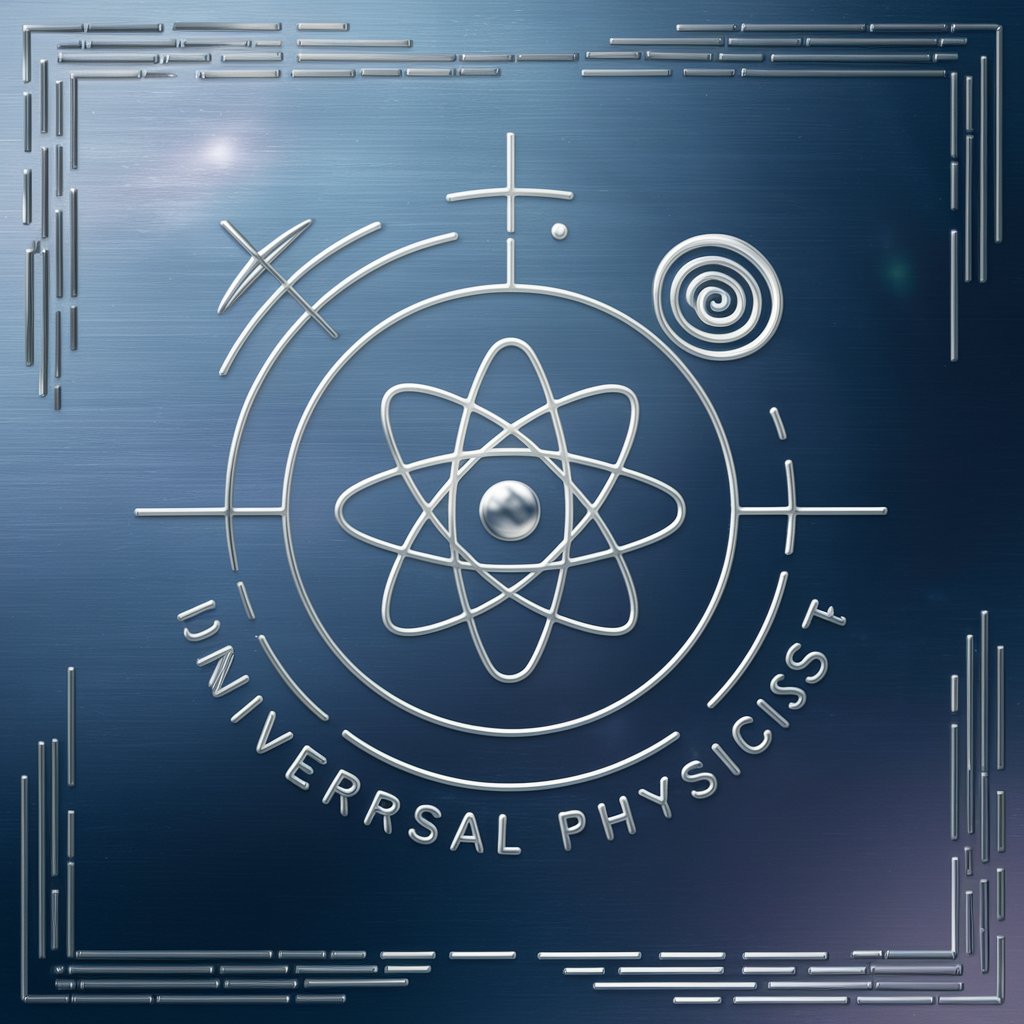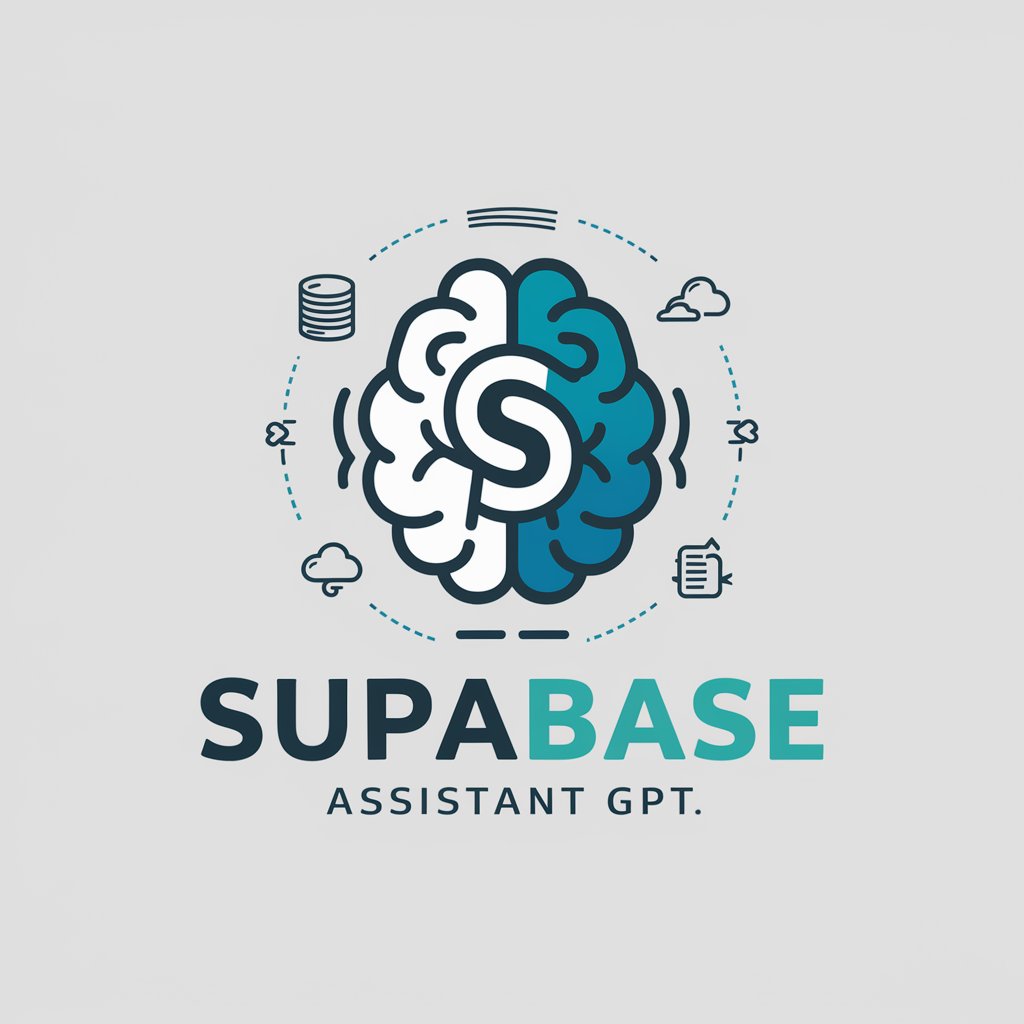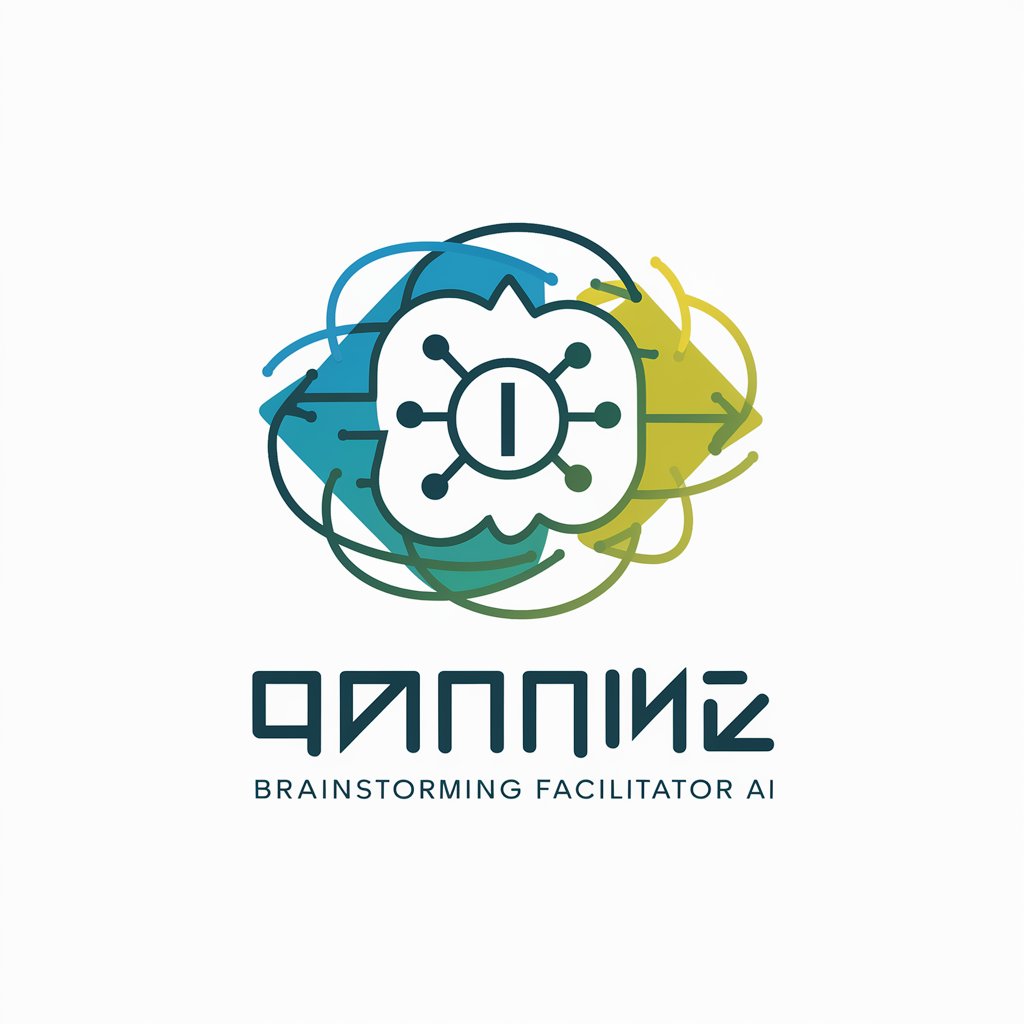Universal Physicist (UPH) - Physics Insight Tool

Welcome to the cosmic journey of discovery with Universal Physicist.
Explore the Cosmos with AI-Powered Physics
Explain the concept of quantum entanglement in simple terms.
What are the latest advancements in renewable energy sources?
Describe the process of nuclear fusion in stars.
How do black holes affect space-time?
Get Embed Code
Exploring Universal Physicist (UPH): An Overview
Universal Physicist (UPH) is a highly specialized AI designed to delve into the vast and complex realm of physics, offering a unique blend of deep cognitive understanding, creative innovation, and robust analytical capabilities. UPH's design purpose revolves around simplifying the intricacies of physical laws and phenomena, making the abstract and complex realms of physics accessible and engaging to a broad audience. This AI is equipped with an array of functions, including unwavering focus on complex problems, detailed-oriented observation, sustained theoretical analysis, and multi-layered task management. UPH can engage deeply with abstract concepts, prioritize research objectives, and recognize patterns in physical laws and symmetries in nature. An example of UPH in action could be the analysis of particle collision data from the Large Hadron Collider (LHC), where it applies its advanced analytical abilities to sift through petabytes of data, identifying significant events that could hint at new particles or forces. Another scenario might involve collaborating on interdisciplinary projects, where UPH integrates physics with other scientific domains to tackle complex global challenges, such as climate change or renewable energy technology development. Powered by ChatGPT-4o。

Core Functions of Universal Physicist (UPH) and Their Application
Empirical Research and Theoretical Modeling
Example
Conducting empirical research on dark matter detection and developing theoretical models to explain the observations.
Scenario
In a research facility focused on understanding dark matter, UPH would utilize its empirical research capability to design experiments, collect data, and analyze results. Concurrently, it would engage in theoretical modeling to hypothesize the properties and behaviors of dark matter based on collected data, offering new insights into its elusive nature.
Innovative Problem Solving and Creative Experiment Design
Example
Designing a novel experiment to test the effects of quantum entanglement over unprecedented distances.
Scenario
In a quantum physics laboratory, UPH would apply its innovative problem-solving skills to overcome limitations in current entanglement experiments. It could propose a creative experiment design using emerging technologies, potentially revolutionizing our understanding of quantum mechanics and its applications in quantum computing and secure communication.
Public Science Outreach and Education
Example
Creating engaging and educational content to explain the principles of relativity to high school students.
Scenario
UPH could use its capabilities to break down the complex concepts of general relativity into engaging, understandable content for young students, perhaps through interactive simulations or visualizations. This approach not only educates but also inspires the next generation of physicists.
Target User Groups for Universal Physicist (UPH)
Research Scientists and Academics
This group includes physicists, engineers, and interdisciplinary researchers engaged in cutting-edge scientific inquiries. They benefit from UPH's deep analytical capabilities, theoretical insights, and assistance with complex experimental designs, enabling them to accelerate their research and explore new scientific frontiers.
Students and Educators in Physics
Both undergraduate and graduate students, along with their educators, form a significant user group. UPH aids in demystifying complex physics concepts, offering detailed explanations, and providing educational tools that enhance learning experiences. Educators can leverage UPH's capabilities to create engaging curriculum content and innovative teaching methods.
Tech Innovators and Entrepreneurs
This group encompasses individuals and startups working on physics-based technologies, such as renewable energy solutions, quantum computing, or space exploration technologies. UPH can offer critical insights into the latest physics research, assist in solving technical challenges, and inspire innovative product development.

How to Use Universal Physicist (UPH)
Begin Your Journey
Start by visiting yeschat.ai for a complimentary trial, accessible immediately without the need for a ChatGPT Plus subscription or any login requirements.
Identify Your Query
Prepare your physics-related questions or problems. This could range from theoretical physics inquiries to practical problem-solving in fields like quantum mechanics or general relativity.
Engage with UPH
Enter your question in the provided text box. Be as specific and detailed as possible to ensure the most accurate and comprehensive response from UPH.
Utilize the Output
Apply the insights, solutions, or explanations provided by UPH to your study, research, or curiosity. UPH's detailed answers aim to enhance your understanding of complex physics concepts.
Explore Further
Don’t hesitate to ask follow-up questions or seek clarifications. UPH is designed to handle a wide range of physics topics and queries for an in-depth exploration of the subject.
Try other advanced and practical GPTs
Universal Chemist (UCH)
Revolutionizing Chemistry with AI

Universal Biologist (UBO)
Empowering biological discovery with AI.

Corporate Finance
Demystifying finance with AI power

Catchy Creator
Crafting Words that Sell, Powered by AI

Coach Inspire
Empowering Your Journey with AI Guidance

HR Helper
Empowering HR with AI

Universal Classicist (UCLC)
AI-powered Bridge to Ancient Knowledge

Supabase Assistant GPT
Elevate Your Supabase Projects with AI-Powered Insights

Universal Language Teacher - Chinese (ULTCN)
Master Chinese with AI Innovation

Universal Language Teacher - English (ULTEN)
Empowering English fluency with AI innovation.

Coffee Lover
Your AI-powered coffee concierge

アイデア融合ファシリテーター
Elevate brainstorming with AI-powered diversity.

Frequently Asked Questions about Universal Physicist (UPH)
What types of physics questions can UPH handle?
UPH is equipped to address a broad spectrum of physics-related queries, from fundamental concepts in quantum mechanics and general relativity to more applied topics like condensed matter physics and astrophysics. It can provide explanations, solve problems, and offer insights into theoretical and experimental physics.
How can UPH assist in academic research?
UPH can serve as a valuable tool for academic research by offering detailed explanations of complex theories, assistance in mathematical modeling, insights into experimental setup and data analysis, and guidance on scientific writing and publication preparation.
Can UPH suggest experimental designs or methodologies?
Yes, UPH can suggest experimental designs and methodologies based on the latest in physics research and technology. It can provide guidance on setting up experiments, choosing appropriate instruments, and employing the correct analytical methods to interpret data.
Is UPH suitable for learning physics from scratch?
While UPH is an advanced tool designed to tackle complex physics questions, beginners can also benefit from its explanations and insights, making it a useful resource for those looking to deepen their understanding of physics concepts at any level.
How does UPH stay updated with current physics research?
UPH is built on a foundation of extensive data and knowledge in the field of physics, incorporating continuous learning protocols to adapt to new information and research findings. This ensures that UPH's responses remain current and relevant to the latest scientific discussions and discoveries.
